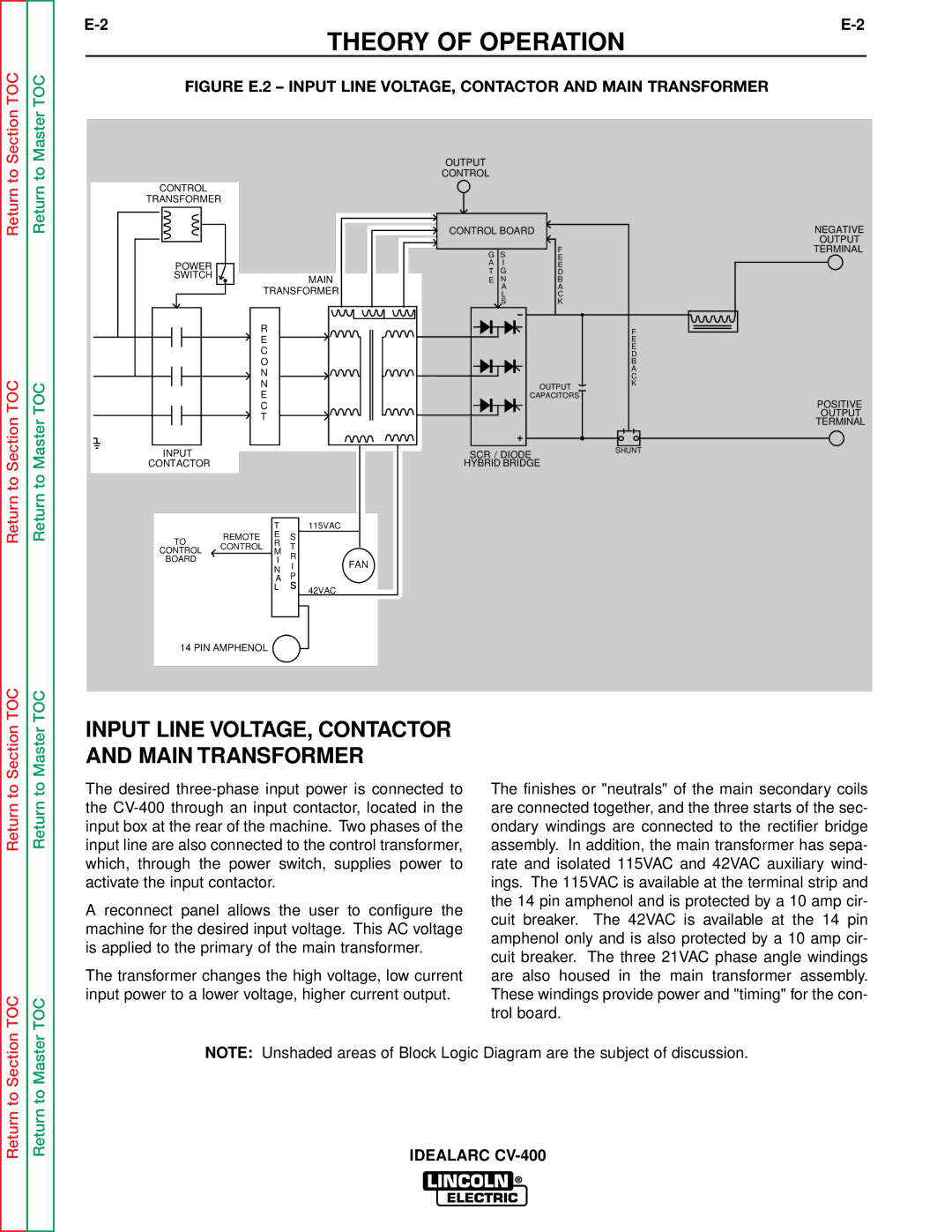
Section TOC
Master TOC
THEORY OF OPERATION
FIGURE E.2 – INPUT LINE VOLTAGE, CONTACTOR AND MAIN TRANSFORMER
Return to
Return to Section TOC
Return to
Return to Master TOC
CONTROL
TRANSFORMER
POWER
SWITCH ![]() MAIN
MAIN
TRANSFORMER
R
E
C
O
N
N
E
C
T
INPUT
CONTACTOR
|
| T |
| 115VAC | ||
TO | REMOTE | E | S |
|
|
|
CONTROL | R | T |
|
|
| |
CONTROL | M |
|
|
| ||
| R |
|
|
| ||
BOARD |
| I | FAN | |||
| I | |||||
|
| N | ||||
|
| P |
|
|
| |
|
| LA |
|
|
| |
|
| s | 42VAC |
| ||
|
|
| ||||
|
|
|
|
|
|
|
OUTPUT
CONTROL
CONTROL BOARD
|
| G | S | F | |||||
|
| E | |||||||
|
| A | I | ||||||
|
| E | |||||||
|
| T | G | D | |||||
|
| E | N | B | |||||
|
|
|
| A | A | ||||
|
|
|
| L | C | ||||
|
|
|
| S | K | ||||
|
|
|
|
|
|
|
|
|
|
|
|
|
|
|
|
|
|
|
|
|
|
|
|
|
|
|
|
|
|
|
|
|
|
|
|
|
|
|
|
|
|
|
|
|
|
|
|
|
|
OUTPUT
CAPACITORS
SCR / DIODE
HYBRID BRIDGE
NEGATIVE
OUTPUT
TERMINAL
F
E
E
D
B
A
C
K
POSITIVE
OUTPUT
TERMINAL
SHUNT
14 PIN AMPHENOL
Return to Section TOC
TOC
Return to Master TOC
TOC
INPUT LINE VOLTAGE, CONTACTOR AND MAIN TRANSFORMER
The desired
A reconnect panel allows the user to configure the machine for the desired input voltage. This AC voltage is applied to the primary of the main transformer.
The transformer changes the high voltage, low current input power to a lower voltage, higher current output.
The finishes or "neutrals" of the main secondary coils are connected together, and the three starts of the sec- ondary windings are connected to the rectifier bridge assembly. In addition, the main transformer has sepa- rate and isolated 115VAC and 42VAC auxiliary wind- ings. The 115VAC is available at the terminal strip and the 14 pin amphenol and is protected by a 10 amp cir- cuit breaker. The 42VAC is available at the 14 pin amphenol only and is also protected by a 10 amp cir- cuit breaker. The three 21VAC phase angle windings are also housed in the main transformer assembly. These windings provide power and "timing" for the con- trol board.
Return to Section
Return to Master
NOTE: Unshaded areas of Block Logic Diagram are the subject of discussion.
